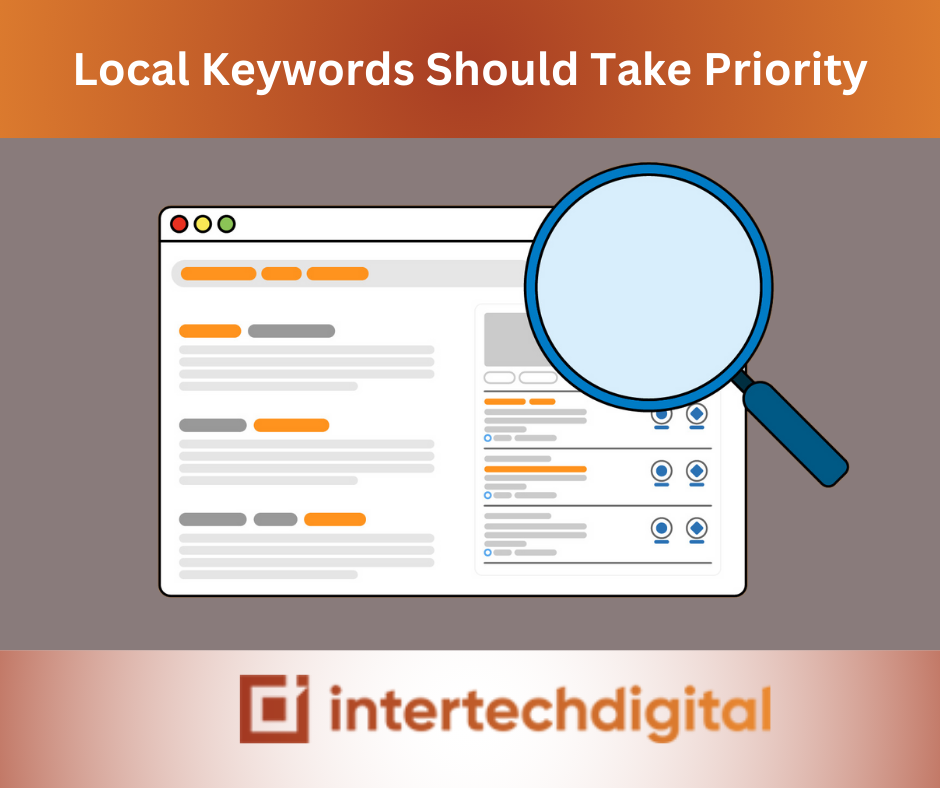In the modern age, particularly for small businesses, having a presence on the internet is the factor that dictates the success of the business. Attaining this exposure begins with proper keyword research services. It is important to know what the audience you wish to target is typing into a search box, what is the mode of doing such, and what approach you have as a business to address their search. This tutorial is aimed at introducing the business owner to the top ten keyword search strategies that would arm them with the capability to improve their online profile and generate more clients.
Get to Know Your Audience
Why It Matters: Before venturing into the nitty gritty side of what keyword research entails, it is best to first have a thorough audience profile. Who is the customer? What are the challenges they face? What are they hoping to achieve? Answering such questions will help narrow down to the most applicable keywords for the given audience.
Actionable Tips:
- Create Customer Personas: Use market research to support the psychographic description of your buyer or a customer profile.
- Determine Pain Points: Try to figure out what your customers are trying to fix and what role your products or services might play in achieving that.
- Some of your customers might prove useful. Make sure to ask for opinions and suggestions to improve your products and services. Such actions should be direct.
- Strategic Nexus: This means that when you know who your target market is, you can also narrow down your keyword research for small business strategies to the patterns of their web searches. This strategy helps optimize your content for search engines, thereby improving the chances that it will be found in the expected queries.
Take It Slowly Phrase Keywords Approach
- Commentary: Narrowing a list of keywords that are relevant for small business marketing begins with broader terms that are within the business niche. Such keywords are more commonly searched but more often than not are dominated by competition, however, they are essential in the process of finding narrow, easy to boast long tail variations.
Instruments Required:
- Google Keyword Planner: This is a free instrument that generates keywords based on universal ideas or terms inputted by the user.
- Ubersuggest: Highly recommended although Ubersuggest is yet another free service that provides search suggestions, search volume and competition results.
- How to Against This One: Each broad-term-based keyword can then be searched in depth to add in relevant modifiers and lengthy adjectives. For instance, if small business marketing is one’s initial anchor phrase, it would be feasible to include and offer such small business marketing long tail keywords as affordable small business marketing strategies or small business digital marketing tips.
- Keyword Strategy Insight: This is at least one way to start the campaign in keyword research. This is where businesses must utilize the search bar of the Google search engine in a bid to identify areas that have potential as key activities of their organization.
Take Advantage of the Long Tail Keywords
The Importance of Long Tail Keywords: These are key phrases that are more narrow and typically longer than generic keywords. Although the search volumes might be lower, they are usually easier to rank for and convert better since they fit user intent more closely.
Examples:
- Broad Keyword: “running shoes”
- Long-Tail Keyword: “best running shoes for flat feet”
How to Find Them:
The AnswerThePublic tool is another means used to create a list of questions or phrases that prospective users are typing in relation to a specific keyword or keywords. Add any broad term in any search engine, start with just a general word and add into it, the results that pop up are suggestions. Long tail keywords often appear in such search forms as suggestions.
Keyword Strategy Insight: It is important to note that if the long- tail words phrases are made prominent in the content, the chances of ranking high for such specific’s are increased as well as bringing in traffic that is highly targeted.
Research on Competitors’ Keywords on Their Websites
Why Its Needed? The process of competitor analysis can be utilized as an effective means to uncover keywords that are driving traffic to other websites within the same industry. Being able to see how competitors find success enables one to find areas where they could compete or create different content.
Competitor Analysis Tools:
- SEMrush: Shows data on competitors’ keywords, backlinks and content that generates the most traffic.
- Ahrefs: Presents a comprehensive analysis of the organic traffic funnel, keyword development, and so forth for your competitors.
What Features to Expect:
- High Traffic Potential Keywords: These are keywords which bring in traffic to competitor websites.
- Content Lacks: Identify content or keywords which your non-targeted competitors simply do not touch or don’t overboard and write content on those areas.
- Areas of Strategic Advantage: Identify areas where you can add more value or bring in a different viewpoint in comparison to the competition.
- Keyword Selection – Fine Tuning: In this case when looking at competition you should adjust your small business strategies and choose the appropriate keywords to search for those that your competitors, will leave behind.
Use Google Search Console
General Overview of The Tool: Google Search Console is a search engine offered by Google that allows the webmaster to monitor his web pages ranking in the search results. For aspiring small business owners with in need of targeted keywords it is a must have tool.
Strengths of Small Enterprises:
- Enter Your Automated Keywords: Enter the keywords people are using to come to your website and modify your site to match these keywords.
- Potential Keywords: Search for keywords that place your website on the second or third result list and add other content that would elevate such placements.
- Tracking the Performance: Check the periodical effect of the changes made in your content and keyword optimization on the search ranking.
Action Steps:
- Set Up Google Search Console: If this is your first time using this tool, then first add your site to Google Search Console.
- Analyze the Performance of the Keywords: Conduct/tag the analysis of the effective keywords on a regular basis and re-strategize.
- Optimize the Keywords That Are Not Performing: Look for potential keywords that are not ranking well (say, 11 to 20) and create or edit the content to help them rank better.
- Understand The Keywords Strategy: Google Search Console gives you a direct overview of the performance of your site in search results and how you can improve the keywords on your website.

Local Keywords Should Take Priority
Why Local Keywords are important: Small-scale businesses which have a physical location or in need of a target geographical area are where these local keywords make the biggest impact. This lets you discover customers looking for similar businesses to yours in the area.
Tips for Finding Local Keywords:
- Location Modifiers: Use normal keywords but add geographic terminology (e.g., ‘coffee shop in Brooklyn’, ‘plumber near me’).
- Google My Business: Make sure that your listing at Google My Business is complete and populated utilizing local keywords that are most appropriate to the business.
- Local Keyword Tools: Find and monitor local keywords with BrightLocal and other such services.
Methods of Execution:
- Optimize Content: Use the local coverage in the blog content, service pages, and meta tags of the website.
- Design Location Category Pages: If you have agents in various zones, it will be ideal to make sure that there is a page for each zone, which will have appropriate copy and keywords.
- Keyword Strategy Insight: It is important to have local keywords because doing so makes sure that your business pops in the search results whenever a person residing in that area seeks for that specific service, thus increasing the chances of getting conversions.
Search Attention is Key
Jenes Shri: The search purpose signifies what users want when they use a particular search phrase. It’s not enough to know what the ranking of a site is, but it is also important to know what the site’s audience wants, in order to produce content that serves its purpose.
Search Intent Types:
- Informational: This is a type of search whereby the user looks for certain information e.g. how to start a small business.
- Navigational: users type specific domains that they want e.g. to, Facebook login.
- Transactional: such users have come the site or any other site, and they want to buy something. i.e. Buy running shoes online.
How Content Content Should Be:
Informational Intent: Produce content targeting the users that may consist of documentations, articles, and how-tos for the users that may want basic information about the functionality of the audience.
Navigational Intent: Structure your site and its meta information in a way, which helps visitors find the desired content quickly as possible.
Rhetorical check, correction or add, music video.
To further increase the effectiveness of content creation – compose your target meta tags and focus the influence of the meaning of the key phrases on the textual blocks.
Make Use of Question-Based Keywords
Significance: As expected, as more and more people utilize search engines to provide answers to their questions, it can be seen that these question based keywords are becoming quite necessary. Using these keywords can make your content a point of reference.
Sources of Content
- AnswerThePublic: Comes up with questions that people are asking in relation to the keywords you are using.
- Quora and Reddit: Such sites can give you an idea of some of the questions that are being asked within your niche market.
- Google’s People Also Ask: The tool that allows you to get suggested questions after entering one.
How to Optimize Content
- FAQ Sections: Create a frequently asked questions section in your company website or on each blog post you make.
- Dedicated Blog Posts: Create a blog page that will address the common questions asked in that industry in a more focused manner.
- Schema Markup: Implement schema that enables search engine’s pages comprehension increasing the probability of being in the featured snippets.
- Keyword Strategy Insight: The upside to using this type of question keywords is that you get to rank high on the queries but also make your company seem like an expert in the field.
Surveillance and Fine-Tuning of your Strategy.
Importance of Monitoring: Optimization is never ending and the functioning of your keywords should also concern you. Search trends, user behaviour and algorithms change which in return affect your ranking and this is why a re-evaluation and re-strategizing should be done quite often.
The Methods of Tracking:
Google Analytics: This will help in tracking site traffic and conversions as well as user behaviour.
SERP Tracking Tools: Using such tools as SEMrush or Ahrefs helps in observing the fluctuations in keyword rankings in the long term.
How to Do Adjustments:
- Check Performance on a Regular Basis: Have a system in place and a timetable to periodically check keyword effectiveness, on a monthly or quarterly basis.
- Repurposing: Enhance the old write up with new content, and add keywords, and appropriate metas.
- Search Introduction: New keywords may be more bloating and so one may want to see how productive they can be and adjust what content they may want.
- Keyword Strategy Insight: Constant monitoring and adjustments guarantee that you will achieve all that is necessary for this keyword strategy to work with the present generation users in a future tense.
Get Some SEO and Content working hand in hand.
Explanation: Keywords are best efficient when packed into quality content that takes good care of your audience. Performing a combination of SEO and content marketing enables growth path by creating such strategies that will generate traffic and improve conversions.
Tips for Integration:
- Natural Keyword Use: The keywords in question should be blended within your content, rather than forcing them everywhere.
- Create Valuable Content: Ensure that you have addressed the needs, queries, and solutions of your target audience in the content.
- Repurpose Content: Use your keyword research in deciding how to develop blog posts, and content in other forms, including videos, infographics and social media posts.
Examples:
- Case Studies: Illustrate the contribution of your products or services to the customers away from general and heavily used keywords.
- How To Guides: Provide adequate instructions supported by your target keywords.
- Product Reviews: Review of the specific products by users, and highlighting their advantages, accompanied with transactional keywords.
- Estrategia de Palabras Clave: Utilizing content marketing to achieve keywords research combines two activities that improve the company impressions and builds trust between the audience and its members.
Conclusion
In addition, effective keyword research defines for small business owners is not just about searching for most sought search phrases but includes audience comprehension, determining what solution needed, and putting it in writing. It is possible to come up with a keyword strategy which helps a small business improve the ranking on the internet and gain highly targeted traffic which convert to additional revenue in after doing these 10 tips.
In the event that you are sufficiently prepared to expand upon the keywords scheme that has been implemented in the previous phases, you should engage a keyword research agency to assist in the assignment or plan to use some keyword research services. The advantages of conducting keyword research are evident: the judicious implementation of a strategy can facilitate growth in your small business and help you get more customers in the process. You can measure exactly how keyword research helps your small business develop.
Call to Action. Wish to expand upon your keyword research strategy? Contact us today and discover our keyword researching services on how we can market your small business via the web. Don’t waste time and enhance your text creation for higher rankings and more hits!



